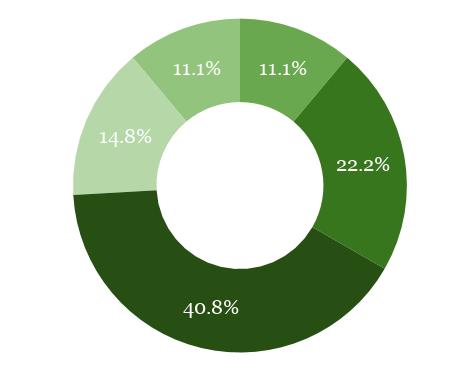
10 minute read
Online Communities
Teachers share experiences of using online dating platforms.

Advertisement
59 -year-old English teacher Robert Guarino started talking to his current partner of three months through match.com, an online dating app that allows users to interact with other profiles that are similar to theirs, and “like” their profile.
“She liked my profile, I went and looked at her profile and I said, ‘Oh! Seems interesting.’ Then we started texting...and we started talking about common interests in music; it was very impressive to me, because I don’t meet a lot of people that I can talk to about popular music without doing a lot of explaining,” Guarino said.
Guarino decided to start online dating because of how hard it was to find people that were the same age as him and had the same interests as him. While there are other alternatives to finding compatible partners besides online dating, many of them fail to provide people with meaningful connections.
“I mean, there are bars; but then the question is raised: Do you really want to
date somebody that frequents bars? And then there is the issue of clubs; how likely are you to meet with someone around your age?” Guarino said.
36-year-old math teacher Gary Lo also thought that the process of meeting people in real life is difficult at times, and it poses a risk of rejection.
“At least for me, I find it socially hard to just approach someone and say, ‘What are you interested in?’ In everyday life, you don’t know if that person is dating somebody else or if they’re looking for someone. It’s a huge risk—or fear—of getting denied I guess,” Lo said.
Lo, who met his wife on eHarmony—a premium online dating service—found that online dating was more convenient than meeting someone in real life.
“I found that the easiest way to meet somebody was to meet them online; I found it to be an easier medium than just going out and saying ‘hi’ to somebody,” Lo said.
However, Guarino stated that the problem that many people might
find with online dating is the way you end up meeting people. In Guarino’s opinion, online dating turns typically natural interactions into something more artificial through the use of the internet.
“When I was younger, there seemed to be a more natural, in the course of your day-to-day activity way, of meeting people. There seemed to be more people looking to meet people. Online it seems to be a bit more like matchmaker,” Guarino said.
However, Guarino didn’t find this matchmaking aspect to be bad. In fact, he thinks that it has power to bring together people with similar personalities, and increase the amount of connections we have with others.
“These matchmaking services bring you in contact, so I think it’s a positive development. Because in this increasingly isolated world, the internet is a forum for potentially bringing likeminded people together,” Guarino sai•
When Facing Issues...

Teacher Kaedan Peters finds communities for parents who raise their child as non-binary.

By Trinity Mai
History teacher Kaedan Peters and their partner decided to raise their child as non-binary, allowing their child to choose their own gender. To get guidance on raising their child as non-binary, especially during their later school years, Peters turns to several online communities such as Facebook parenting groups. In Peters’s mosttrusted group, Raising Theybies, they look to see how to get a parenting issue solved if they cannot solve it themselves. “You get a much wider range of people you’re getting in contact with, like I’m never in a conversation with 500 people,” Peters said. ”But [if] I posted something on this site, then I have the potential to hear from 500 people if they’re reading it or seeing it...I feel like that is different.”
Despite the sense of community that comes from these groups, Peters admits that there are differences between having an online community and an inperson community. To Peters, having an additional online community also meant that they might turn to acquaintances to ask for advice less frequently.
“There were times where I would worry too much or that would be the first place I would go in asking a question in these online communities rather than going to my network that I have people in person [to talk to],” Peters said. “Sometimes, I want to ask a question that I maybe feel embarrassed about, and I don’t want to ask an acquaintance, parent, or friend that I know. I’ll ask these strangers.”
Despite having more people who Peters can turn to, they believe that there are negative effects as well. Having wider networks has led Peters and their partner to sometimes doubt themselves, but they have witnessed how the communities have impacted others. Peters saw how members of the group help one another out by answering questions that cannot be answered by the general public such as the topics of keeping their babies’ genitalia private, not disclosing their babies’ gender, using a gender-neutral pronoun in their native language if their

language does not have such pronouns, and filling out legal documents.
While the issues might not pertain to Peters, there are international members in the group who might not be able to get sufficient information on raising their child as non-binary in their local community. However, they can use the Facebook group as a resource with guidance from the members.
“Because I’m in the Bay Area, one of the most progressive places in the world, it was not shocking to many people when I was like...‘we’re going to use they/them pronouns for my kid,’” Peters said. “I see posts for people being like ‘I live in a town of 500 people in the middle of nowhere, and we’re the only queer family.’ So it’s really isolated. Having that kind of lifeline to an online community where you’re seen and you’re heard and you can get feedback from other people...it’s huge if you don’t have that in your dayto-day life.” •
Senior Mason Lewis started dating his current partner of two years through Skype, a social media platform that was frequented by kids and adults in the 2010s. They met through Minecraft, a popular sandbox video game.
“I was playing on a small modded server with a friend…[Her friend] told [her] about it, and they came over to say hi,” Lewis said. “Eventually, it [led us to talking on Skype], because [back then], who didn’t ask ‘You got Skype?’” Since then, their connection has grown from playing Minecraft and calling on Skype to other games and social media platforms, most notably Stardew Valley and Discord, where Lewis’s new relationship was revealed to his friends.
“A lot of my friends started migrating to Discord,” Lewis said. “It was getting a bit tough to jump between Skype and Discord, so I asked her to join me on it, and she did.”
When the relationship moved to being based on Discord, Lewis was hesitant about letting his friends know about his new relationship.
“It was getting a bit hard to jump back and forth between Skype and Discord, so I asked her to join me on it, and she did,” Lewis said. “However, at the time, a lot of my friends were getting on Discord as well, and I felt nervous on inviting her into my server, because I didn’t know whether or not [my friends would] understand the concept of dating someone over the Internet, or they’d judge me or something.”
Although he feels that his friends have gotten a better grasp on the concept of online relationships, Lewis still experiences setbacks within this relationship, as the distance brings about a lack of intimacy.
“I’m not really able to comfort her the way I would be able to, because I’m not really expressive with how I talk sometimes,” Lewis said. “There’s also the disconnect[ion] between us since we can’t really see each other in person.”
Additionally, Lewis also recounts a time where he had to step away from the relationship, but he remained optimistic.
“I had doubts on if she was really ‘the one,’” said Lewis. “The breaks made me regret the decision, since I would always think about her during them, and how many mistakes I made during the relationship.”
Despite the setbacks he’s experienced, Lewis still believes that the relationship will continue to grow.
“I’ve met someone I can truly connect with, spend time with, enjoy things with, and just overall be happy with,” Lewis said. “I haven’t been able to have that sort of relationship with anyone in person, but with the Internet, it was possible.” • Long-Distance Dating Student details his experience being in an online relationship. By David Ye Friends or Foes Student shares his experience being in a gaming community. J unior Jomar Belen meets new friends on the games League of Legends, Minecraft, and Counter Strike: Global Offensive (CS:GO). Belen talks to them through Discord. He also communicates with the friends he has made in person on the PlayStation 4 (PS4).
“I use [Discord] to meet new friends online and just talk to random people. I stay in contact with [people I’ve met in person] through PS4,” Belen said.
Psychology teacher Carrie Kelder explained how teenagers make friends online because they feel like they do not belong to any group.
“Sometimes teens feel like they don’t fit in or haven’t found their people, and I would want to encourage them on that human interaction. But I do think sometimes that online interaction can make some people feel less lonely or less isolated,” Kelder said.
However, for Belen, some of his friends had moved away so he has to use social media to to stay in touch with them. He recalled that one of his best experiences is his ability to stay connected to his friends.
“[The best moment I’ve had is] making a Minecraft group chat with friends that are [living] an hour away. We don’t really meet each other in real life [because they moved],” Belen said. Kelder then talked about what teens should do if they are ever in a chat room and there is someone saying racial slurs or is mocking someone.
“I think that [the teens] should get out of the group chat or report the group chat. If someone is being really offensive and is not stopping, then I think it’s time to shut it down,” Kelder said.
Belen resonates with Kelder, and he is less trustworthy with those he interacts with online than if he were to know them in person.
“I prefer to talk to them in person because in person you can actually trust the person since you know them. But online, you can’t really trust people because they can be acting good online. But in real life, they can be a terrible person in general…Honestly it is just better to do things in person [because there is more trust],” Belen said. • By Rafael Eugenio Dúran

Our Better Half
By Christopher Yalung and Trinity Mai
A survey was created and given out to AHS students in fourth period Math 1, Math Modeling, and English 10 classes. The responses gathered include information about the romantic relationships of 59 students.
I’ve always been single
I was in a relationship and am currently single
49.2%
30.5%
I am in a relationship
20.3%
Throughout high school...
11.1% of students had four or more relationships
11.1% of students had zero relationships
22.2% of students had one relationship
14.8% of students had three relationships

52.5% 72.2%
40.8% of students had two relationships
of students who were in a relationship but are currenty single think social media has a negative effect on relationships
of students are confident that they will stay in their current relationship









